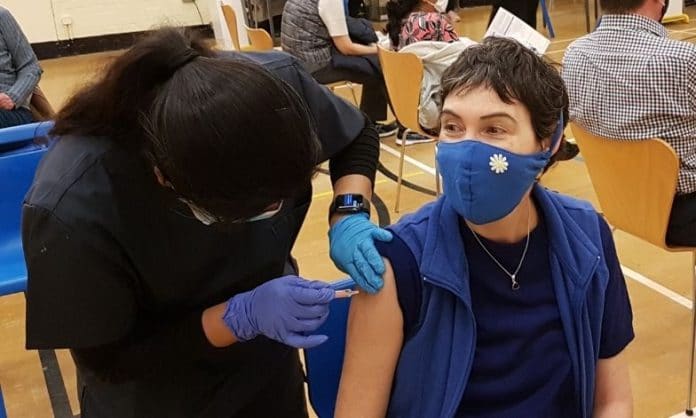The Omicron variant of the coronavirus is now present in 128 countries and is expected to affect more than 50% of the population in the European Region in the coming weeks, according to the World Health Organization (WHO).
“In a context of intense social mixing, limited use of public health measures, and limited vaccine coverage globally, these conditions will allow any variant, any virus, to spread,” Dr. Maria Van Kerkhove, WHO’s technical lead for COVID-19, said. “Omicron benefits from that, and so does Delta.”
It is critical to continue vaccination efforts worldwide with an equitable distribution of available vaccines and to maintain the implementation of public health measures.
The unprecedented scale of transmission of Omicron has resulted in increased hospitalizations, with mortality rates remaining stable. “The new variant challenges health systems and service delivery in many countries where Omicron has spread rapidly and threatens to spill over into many others,” said Dr Hans Kluge, WHO Regional Director for Europe.
What is the difference with the other variants?
The genetic profile. While the highly transmissible Delta variant has 9 mutations on the spike protein, which plays an essential role in infection, the Omicron variant has 32 mutations on this protein and about 50 in all.
Dr. Abdi Mahamud, an epidemiologist at WHO, noted that a growing number of studies show that the Omicron variant primarily affects the upper respiratory tract, causing milder symptoms.
“Although Omicron appears to be less severe than Delta, especially in vaccinated people, this does not mean that this variant should be called ‘mild’,” said Tedros Adhanom Ghebreyesus, WHO Director-General.
“As the tsunami of cases is huge and rapid, it is overwhelming health systems around the world,” he stressed, adding that hospitals are becoming “overcrowded and understaffed.”
Will the tests and vaccines still be effective?
“Currently licensed vaccines continue to provide good protection against serious illness and death, including those caused by Omicron,” Dr. Kluge said.
He also reported that the hospitalization rate among unvaccinated patients was 6 times higher than among those who were fully vaccinated. First-generation vaccines may not stop all infections and transmission, but they continue to save lives.
“The challenge has not been the vaccine, but the vaccination of the most vulnerable populations,” according to Dr. Abdi Mahamud. He therefore urges more countries to push for 70% vaccination coverage as soon as possible.
The WHO’s call for global vaccine equity is not new and comes as many high-income countries consider offering a fourth dose of vaccine to their citizens. Yet millions of people in low-income countries have not even received a first dose.
“Indiscriminate booster programs are likely to prolong the pandemic, rather than stop it, by diverting available doses to countries that already have high vaccination rates, giving the virus more opportunity to spread and mutate,” said Dr. Tedros Adhanom Ghebreyesus.
PCR and antigenic tests continue to detect infection, including by Omicron.
What are the WHO recommendations?
WHO recommends that countries adopt a scientific approach based on risk assessment, transparency through data sharing, and intensified surveillance and case sequencing to better understand circulating variants.
The Organization urges countries to pursue the vaccination strategy, primarily for high-priority groups, in a thoughtful and risk-proportionate manner. Indeed, vaccination remains essential to reduce the risk of complications, transmission, and mutation of the virus.
 States should also continue to implement public health measures to reduce the overall circulation of COVID-19. These include physical distancing, wearing masks, ventilating indoor spaces, washing hands, coughing or sneezing into one’s elbow, or avoiding crowded, enclosed spaces.
States should also continue to implement public health measures to reduce the overall circulation of COVID-19. These include physical distancing, wearing masks, ventilating indoor spaces, washing hands, coughing or sneezing into one’s elbow, or avoiding crowded, enclosed spaces.
Dr. Kluge emphasised the need to keep schools open, as they are important for the mental, social, and educational well-being of children. Teachers and school staff should be included in the priority population groups for vaccination.
Priority should also be given to reducing disruptions to health systems and essential services, according to WHO.
“Any decision to shorten quarantine or isolation periods should be made in combination with negative COVID-19 tests and only when it is considered important to preserve the continuity of essential services. Any such decision should be made by carefully weighing the risks and benefits of such a measure.”
(en) WHO: 50% of the population in Europe could be infected by Covid in next 2 months
(en) Statement by Dr Hans Henri P. Kluge, WHO Regional Director for Europe
(en) 70 per cent vaccination target must be met to ward off Omicron: WHO




